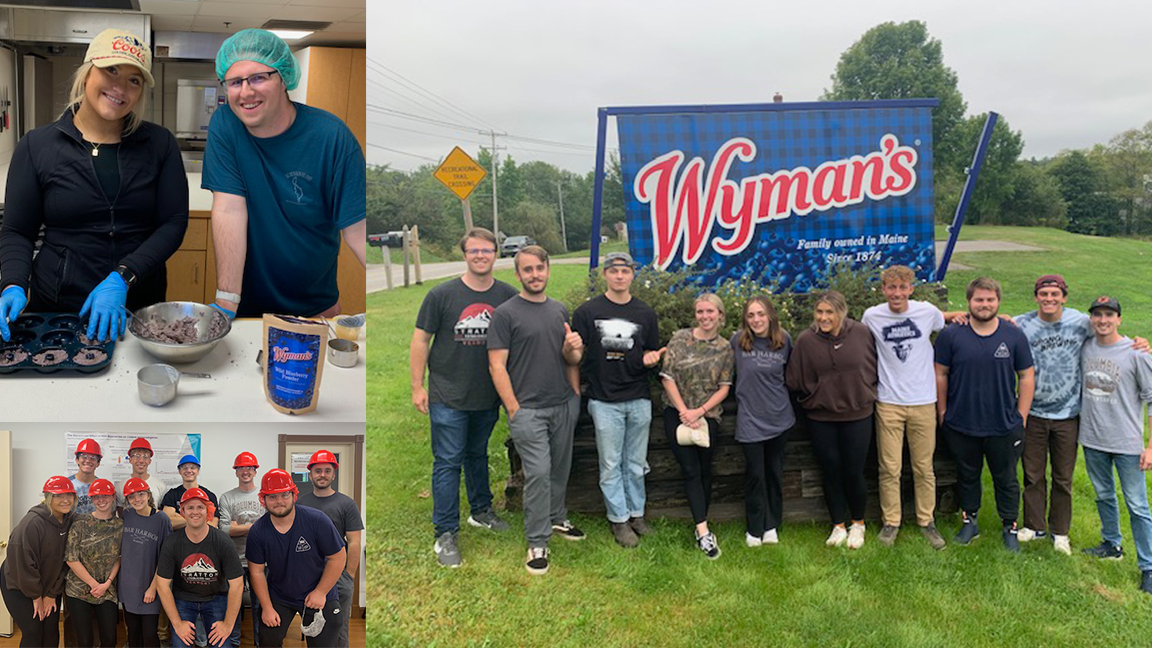
The Business of Blueberries
A cohort of Maine Business School students spent the fall 2023 semester helping Jasper Wyman & Son solve a real-world business problem—what to do with blueberry byproducts. The Business of Blueberries class is an advanced Research Learning Experience (RLE), meaning students are engaged in meaningful research work throughout the semester.
“This is not your typical course,” says Professor Buffie McCue-Quinn. “It’s incredibly entrepreneurial, and there is a lot of ambiguity. It’s my goal to try to get students to understand that their failures often lead to the next success.”
The challenge posed to students was to offer suggestions about what Wyman’s can do with the blueberry byproduct, called pomace, left over from the juicing process. Pomace consists of leftover blueberry skins, stems, and seeds, which don’t fit through a filter in the juicing process. While most sugars and water have been squeezed out of the blueberries, fiber and nutrients remain in the pomace. Annually, Wyman’s produces about 65,000 pounds of pomace.
Unless the pomace is frozen or dried quickly, it has a short shelf life. After a couple of days, mold and yeast begin to grow. Currently, Wyman’s disposes of or donates the pomace to pig farmers as feed. Students devised alternative uses for this pomace during the class.
Gillianne Bolduc, a marketing major from North Haven, Connecticut, developed three product ideas with her team: toothpaste, a scented candle, and exfoliating scrub. “Our suggestions for the byproducts shifted over the semester,” Gillianne says. “After our midterm presentation with Wyman’s, we pivoted our ideas based on their recommendations.” Henry Tate, a marketing major from Holliston, Massachusetts, worked on a team that suggested a dye, a dog treat, and a lip balm. “We settled on these ideas through testing and research,” he says. “We found these ideas to be practical, unique uses for the byproduct.”
Because of the nature of Wyman’s and their real-world business challenge, MBS students worked with partners from the food science and human nutrition program in UMaine’s School of Food and Agriculture. Students went into UMaine kitchen labs to learn about the food science behind blueberries and their byproducts.
This RLE course operates similarly to an internship. Students work in small groups throughout the semester, taking turns assuming leadership roles. “This class reflects the work and challenges of work beyond the classroom, which often pushes students out of their comfort zone,” McCue-Quinn says. “There is no strict grading rubric and often not one right answer. Most students don’t appreciate how much they’ve learned until they reflect at the end of the semester.”
Working alongside a company throughout the semester was something Gillianne had yet to experience while at UMaine. “This class was an amazing opportunity to have a hands-on experience and a real taste of the business world,” Gillianne says. “This class was intellectually challenging. It gave me the opportunity to learn a lot about myself as a student and future businesswoman.”
